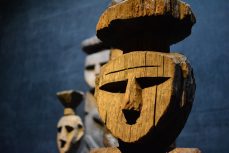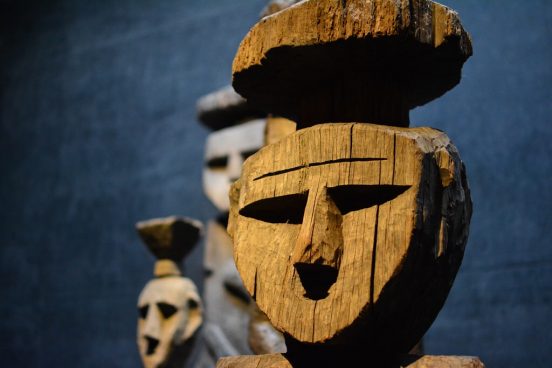
FHIS-Spanish for Community – Spanish 301-102 (UBC Vancouver. BC),
Facultad de Humanidades, Departamento de Lengua Literatura y Comunicación, and Instituto de Estudios Indígenas.Universidad de la Frontera (UFRO, Temuco, Chile)
“PALABRAS MADRE – MOTHER WORDS”
Bridging people and land through language: words that matter from Mapudungun/Spanish to English
“Toda la tierra es una sola alma.
No podrán morir nuestras almas,
cambiar sí que pueden;
pero no apagarse.
Una sola alma somos
Como hay un solo mundo”
“The whole Earth is one soul.
Our souls can’t die,
to change, they can;
but to fade away not.
One soul we are,
as there is only one world.”
Cacique Abel Kurüuinka, “Canto mapuche” (1963)
“PALABRAS MADRE – MOTHER WORDS”
Bridging people and land through language: words that matter from Mapudungun/Spanish, to English. Creation of a blog with a trilingual multimedia anthology (Mapudungún-Spanish-English) of words, poetry and images related to nature and land. A translation and multimedia community engaged project.
Spanish for Community (FHIS, UBC), Spanish 301, section 102 class in partnership with Departamento de Lengua y Comunicación, y el Instituto de Estudios Indígenas de la Facultad de Humanidades (UFRO)
Description, curriculum alignment and highlights
Course-based project: Creation of a blog with a trilingual multimedia anthology (Mapudungún-Spanish-English) of words, poetry and images related to nature and land, and a public session of poetry reading by guests readers and students.
Community engaged project, course based mandatory component, Spanish 301, coordinated and supported by Spanish for Community, in partnership with Departamento de Lenguas, Literatura y Comunicación, y el Instituto de Estudios Indígenas de la Facultad de Humanidades (UFRO)
Rationale and description:
Considering both UBC and UFRO common ground of being located in traditional, ancestral and unceded Indigenous territories situated in the South and North of the Pacific Coast, the Musqueam nation in BC (Canada), and the Mapuche nation in the Araucanía, (Chile), and acknowledging the implications of teaching and learning through colonial languages, this is a first stage of a seed project towards the indigenization of second language teaching and learning. The aim of the project, based on language mediation is to create bilingual materials for university students and their communities, aimed to disseminate Mapuche literary authors, to foster critical reflection on the transnational reality of indigenous lands and on decolonizing the experience of language teaching and learning.
Participants guided by our partners, Chilean scholars, and members of the Mapuche nation learned about history and the current situation of indigenous people in their territories in Chile and Argentina, and its culture in relationship with the language, Mapuzugún, as well as language status and politics . Through listening, reading, discussing and translating important and significant cultural terms and notions, as well as a poetry from Mapuche authors students collectively created a multimedia blog and provide the English translations of poems and educational documents.
The project also connects with the territory where our classes are held, the Musqueam territory and its own historic and current context. As part of the co-teaching component the presence of the Musqueam community is a key element and students had the opportunity to meet and learn from Musqueam artist and knowledge keeper Debra Sparrow.
Description
Students from Span 301-101 through Spanish for Community, guided by scholars from UFRO and members of the Mapuche nation, create a blog with an anthology of significant Mapuche cultural words, poetry from Mapuche authors, in Mapudungún and Spanish, information about the poets and provided an English translation. Students reflected on both texts (the original/s and their English version) and the translation process and linked with images from the local landscape and arts (from BC or from the place they considered home) they relate with the poem translated, and the glossary creating a visual connection between words, and territories.
Student involvement: Span 301-102 class, 30 students
- Course-based project mandatory (15% of course total marks) aligned with course curriculum and learning outcomes: Individual and collective research and translation, the class will collectively a create a blog with an trilingual anthology of words, poetry in the Mapuche language translated into Spanish and English (students will provide the English translation) and it will include a visual reflection through images related to the territory where UBC is located in BC.
- Designer for FHIS: Dr. Maria Carbonetti coordinator (Span 301 – SFC),
- Partner Liaison and project co-designer from UFRO: Dra. Carolina Navarrete (UFRO)
- Spanish for Community project coordinator: Lorenia Salgado Leos, TA and Graduate Project Assistant
- Co-teaching component and guest speakers: Dra. Carolina Navarrete (UFRO), Jacqueline Margarita Caniguan (UFRO, University of Leiden)
- Musqueam Speaker Guest: Debra Sparrow
- Mapuche Speaker Guest: Jacqueline Margarita Caniguan
- Co-teaching component: 3 hours (three classes) + Final event (2h)
Budget: CA 200
Alignment with course curriculum and learning outcomes:
Learning Outcomes:
- Identify and apply cultural, and topic-specific vocabulary and grammar structures in appropriate contexts, through community engaged learning projects.
- Retrieve specific content from audio, audio-visual resources and native speakers’ quests from the community.
- Read, analyze and discuss a variety of cultural and literary texts understanding cultural, geographic and historical contexts, and linguistic complexity.
- Expand and develop their cross-cultural awareness and understanding by studying, describing, and comparing critically diverse aspects of the Hispanic culture and participating in optional community engaged learning projects.
Project Specific Learning Objectives:
- To expand students’ awareness and understanding of the role of indigenous languages and colonial languages across the continent in transnational contexts.
- To examine the impact of language politics on indigenous languages and cultures in the Mapuche area in South America.
- To develop strategies and solve questions of linguistic mediation in English to Spanish, and Spanish to English.
Alignment with B1 level curriculum:
- The project is organized around activities involving the 4 kills: speaking, listening, reading and writing.
- Speaking: discussing in class in groups and interacting with native speakers’ guests from our partner organization.
- Listening: audiovisual resources, and native speaker guests.
- Reading: poetry and non-literary documents related to the project.
- Writing: language mediation, translation and reflection.
